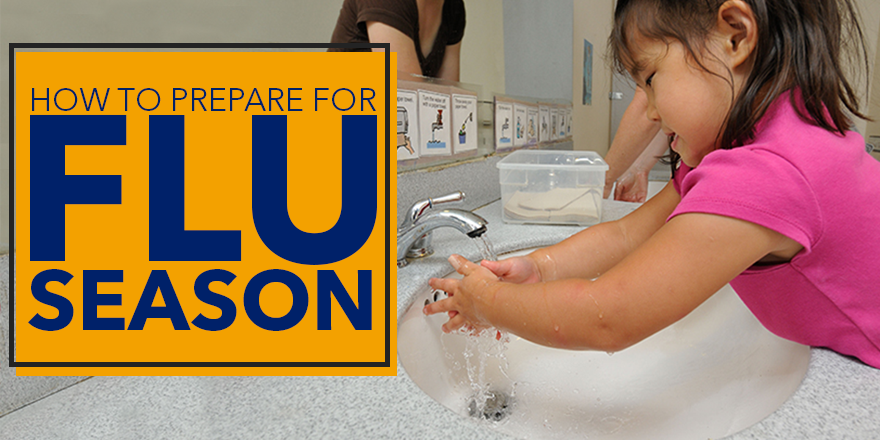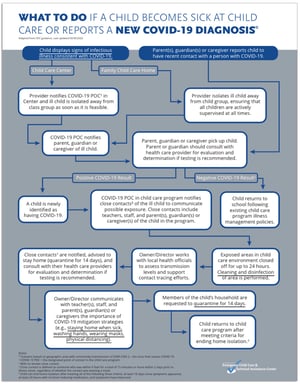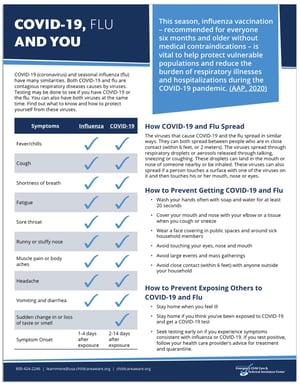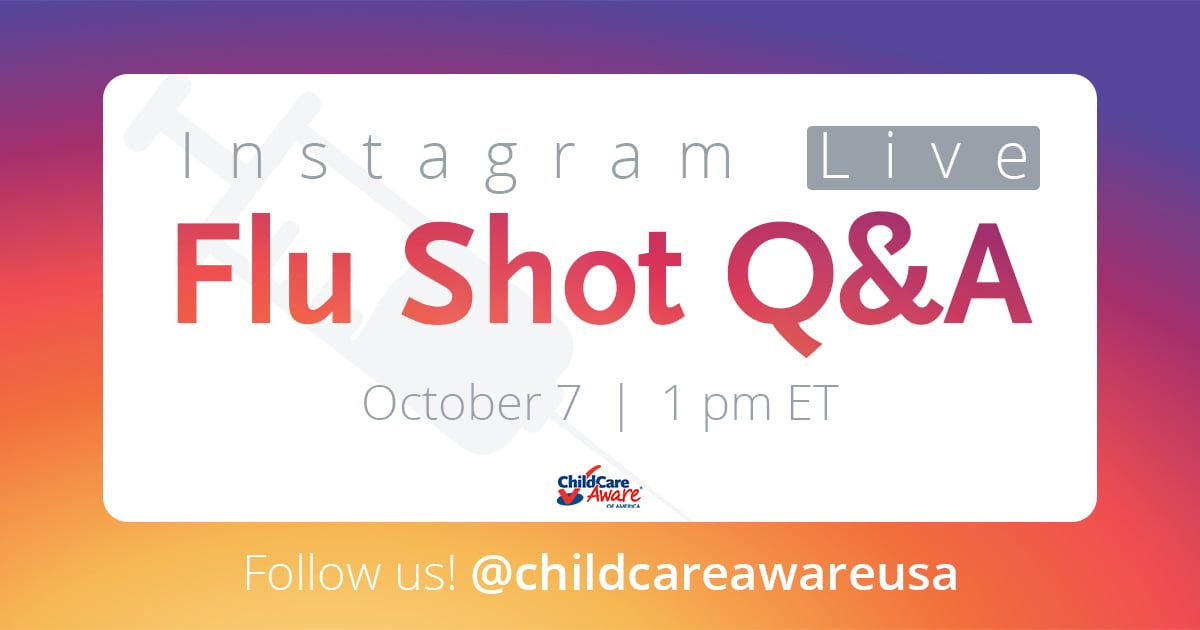
Influenza (Flu) season is upon us and getting a flu vaccine, especially during 2020-2021, is more important than ever. Flu is a respiratory illness caused by influenza viruses and infects the nose, throat and in some cases, the lungs. The Centers for Disease Control and Prevention (CDC) recommends annual flu vaccines for anyone 6 months and older. Flu vaccines are the best way to prevent flu and it is especially important for child care providers who care for young children as vaccination can reduce the spread of flu. During the COVID-19 pandemic, flu vaccines are critical to reducing the overall impact of respiratory illnesses and reducing the burden on the health care system.
What is flu and why are flu vaccines important?
Flu is spread between individuals and can cause mild to severe illness. It is different from a cold and usually comes on suddenly with symptoms including:
- Fever
- Sore throat
- Headaches
- Muscle aches
- Body aches
- Cough
- Fatigue
Flu viruses can be spread through droplets when an infected person coughs, sneezes, or talks. You can also get flu by touching a surface that has the flu virus on it and then touching your mouth, nose, or eyes, although this mode of transmission is less common. Flu can result in complications like ear infections, sinus infections, and bacterial pneumonia.
Why should providers get flu vaccines?
Child care providers are essential in providing quality child care. Due to working in group settings with children, providers are at increased risk for contracting the flu. Keeping yourself healthy is critical to ensuring your health and your ability to work. In addition, keeping children healthy and safe is vital for children’s development. With the coronavirus impacting many child care providers nationwide, child care providers who are open and still caring for children have had to implement health and safety procedures to keep themselves, the children in their care, and their families safe. For child care providers who care for young children, flu vaccines can keep you and the children in your care safe. It is important to note that children who are younger than five years old are at high risk of developing serious flu-related complications. Child care providers do many things, including basic sanitation methods to ensure their home or center is clean. Getting a flu vaccine each year is an important step in preventing flu in addition to frequent hand washing.
Why are flu vaccines important during COVID-19?
Getting a flu vaccine is more important than ever due to the COVID-19 pandemic. In the wake of the pandemic, many child care providers have been impacted and forced to close. Child care programs who are open and caring for children should take the important step to prevent flu this season by getting a flu vaccine. The CDC believes the flu virus and the virus that causes COVID-19 will both be spreading. Although health experts are still studying how common this can be, it is possible to have flu and COVID-19 at the same time and some of the symptoms of flu and COVID-19 are similar. While getting a flu vaccine will not protect a person against COVID-19, flu vaccines are still important and beneficial as they reduce the risk of flu illness.
When a child gets sick, it may be hard to decide how to proceed. Child Care Aware of America (CCAoA) has developed two resources to aid providers in making decisions. First, a Flu vs Covid symptom crosswalk can help providers and families to understand the similarities and differences between COVID-19 and the flu. Second, What to Do When A Child Becomes Sick can help providers decide what to do. This resource was adapted from CDC guidance for schools.
How can CCR&Rs support flu season preparation?
Child care resource and referral agencies (CCR&Rs) should encourage child care programs to educate their employees and families on the importance of receiving a flu vaccine. CCAoA developed “Grab, Adapt and Go” materials to aid CCR&Rs in providing information to providers. Additionally, CCR&Rs could consider hosting a flu vaccine clinic for child care providers and families in their community. A step-by-step guide is provided here.
Resources
Flu vaccines are generally available at no cost to adults and children with employer-based or government-sponsored health insurance. Many states and CCR&Rs provide health and safety trainings on communicable diseases for providers. You can talk to your doctor or health department for more information on vaccination locations. For child care providers who do not have a doctor they see regularly, federally funded health care centers also can provide vaccines to eligible individuals without insurance (search for a health center here).
For more information on flu season preparation, please see our issue brief and explore the Seasonal Flu and Season Cold Resource Hub from CCAoA.
In case you missed it, CCAoA's Nicole Garro and Crystal Givens chatted on Wednesday, October 8 on Instagram Live about what you need to know about child care and the flu immunization. Watch us at @childcareawareusa.








